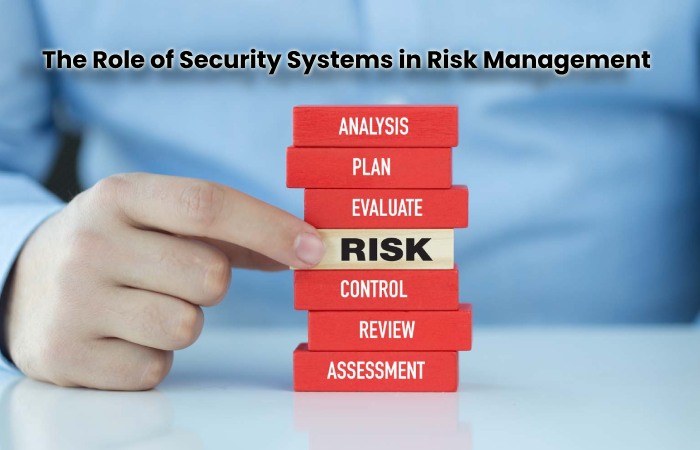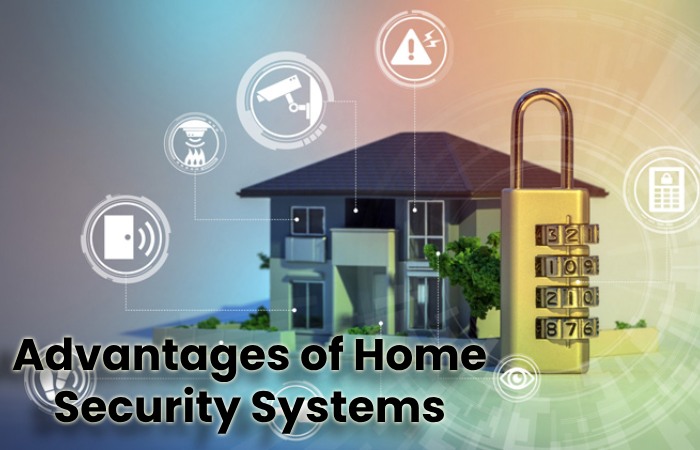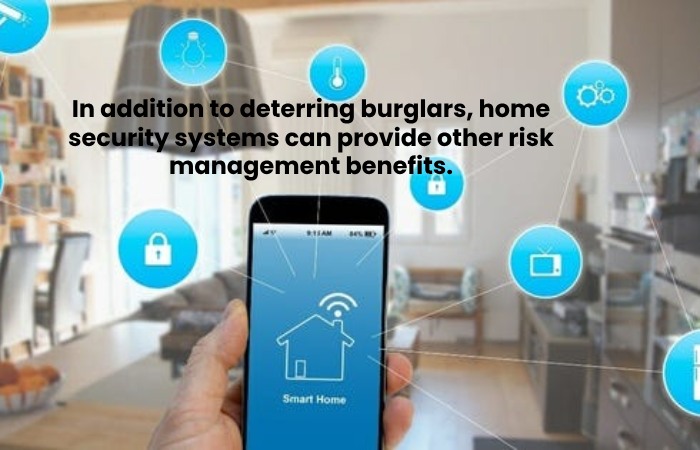In an ever-evolving world, ensuring the safety and security of your home has become a top concern. A security system does much more than protect against unauthorized entry; It plays an essential role in risk management. This article covers various aspects of how having a security system for your home is a comprehensive risk management strategy. We explore these systems’ versatile benefits, from deterring potential threats to providing peace of mind.
Table of Contents
The Role of Security Systems in Risk Management

Security systems are more than a collection of sensors and cameras. They serve as a solid risk management tool by:
- Deterring Criminal Activity: The mere presence of security cameras and alarm systems can deter potential thieves and intruders.
- Real-Time Monitoring: Modern security systems allow for remote monitoring, allowing homeowners to monitor their property regardless of location.
- Instant Alerts: In a breach, security systems alert homeowners and authorities immediately, minimizing response time.
- Reducing Material Damage: Smoke and fire detectors integrated into security systems can reduce material damage by ensuring rapid intervention by the fire department.
Advantages of Home Security Systems

Investing in a security system for your home offers numerous benefits, making it an effective risk management strategy:
- Advanced Property Protection: Security systems protect your home and belongings from theft, vandalism, and other property-related risks.
- Family Safety: Protecting your loved ones from potential dangers is paramount. Security systems provide your family members with a sense of security and safety.
- Lower Insurance Premiums: Many insurance companies offer summary premiums to homeowners with security systems that reflect the reduced risk of property damage or theft.
- Remote Access: Modern systems provide remote control and monitoring via smartphones, allowing you to manage your security even when you are away.
- Valuable Evidence: In the unfortunate event of theft, security footage can serve as vital evidence for law enforcement and insurance claims.
Security System Types
Security systems come in a diversity of forms, each meeting different security needs:
- Alarm Systems: These systems contain sensors that trigger alarms when unauthorized access is detected on doors and windows.
- Surveillance Cameras: Security cameras capture visual evidence of any activity around your property, acting as a deterrent and providing valuable information to authorities when necessary.
- Access Control Systems: Used primarily in commercial spaces, access control systems restrict entry to authorized personnel through critical cards, biometric scans, or codes.
- Smart Home Security: Integrating technology, these systems increase security by allowing remote control of locks, lights, and even devices.
Psychological Effect
The psychological benefits of having a security system are undeniable:
- Peace of Mind: Knowing that your home is protected around the clock provides peace of mind.
- Trust: Feeling safe in your environment allows you to confidently focus on other aspects of your life.
- Empowerment: Security systems empower homeowners by giving them control over their security and protection.
Choosing the Right Security System
Choosing the appropriate security system requires careful consideration of your specific needs and preferences:
- Wired vs. Wireless: Decide between wired and wireless systems. Wireless systems are calmer to install and offer more flexibility regarding device placement.
- Components: Consider the necessary components, such as security cameras, motion sensors, door and window devices, and smart locks.
- Monitoring Options: Choose between self-monitoring and professional monitoring. Self-monitoring allows you to receive alerts directly, while professional monitoring involves a third-party service that contacts authorities in an emergency.
- Integration with Smart Home Devices: If you have other smart devices, choose a security system that can participate seamlessly with your existing smart home ecosystem.
Installation and maintenance
Sound installation and regular maintenance are essential to safeguard the effectiveness of your security system.
- Professional Installation: Some systems offer DIY installation, but choosing professional installation will ensure that your system is set up correctly and optimally.
- Testing and maintenance: Regularly test system components and perform maintenance tasks such as battery replacement and camera cleaning to ensure consistent functionality.
Emergency response and support
Having a security system in place also means having a reliable contingency plan.
- Emergency Contacts: Provide emergency contact information to security providers and local authorities for quick response during an incident.
- Family Emergency Plan: Create a family emergency plan that outlines actions to take during a break-in, fire, or other emergency.
Legal and ethical considerations
Understanding the legal and ethical implications of implementing a security system is essential.
Privacy concerns: Ensure your security cameras don’t invade your neighbors’ privacy or record areas off your property.
Local regulations: Research local laws and regulations regarding using security cameras and surveillance systems to avoid legal complications.
In addition to deterring burglars, home security systems can provide other risk management benefits. For example:

- Monitoring: Many home security systems include remote monitoring capabilities that allow you to monitor your home even when you’re away. This can help you stay conscious of suspicious activity and respond quickly if necessary.
- Video surveillance: Some home security systems include cameras that can record footage of any activity on your property. These images can be used as evidence of a break-in or other crime.
- Discover How to Organize Your Home Almost Instantly
- Automatic alerts: Many home security systems can be set to automatically send alerts (e.g., text messages or email) to you and designated contacts (e.g., friends, family members, or authorities) in the event of an emergency. This can help ensure that help arrives quickly.
- Smart home integration: Many home security systems can remain integrated with other smart home devices, such as thermostats and lighting. IT can help you manage your home’s energy usage, reducing your utility bills and the risk of fire.
Conclusion
Investing in a security system for your home goes beyond mere protection; It is a comprehensive risk management strategy. From deterring potential threats to providing real-time alerts and peace of mind, these systems offer a range of benefits that protect your property and loved ones. With the combination of advanced technology and professional expertise, security systems have become integral to modern home ownership and contribute to a safer and more secure living environment.
